Biosensors, data privacy and manufacturing research highlighted at Davos
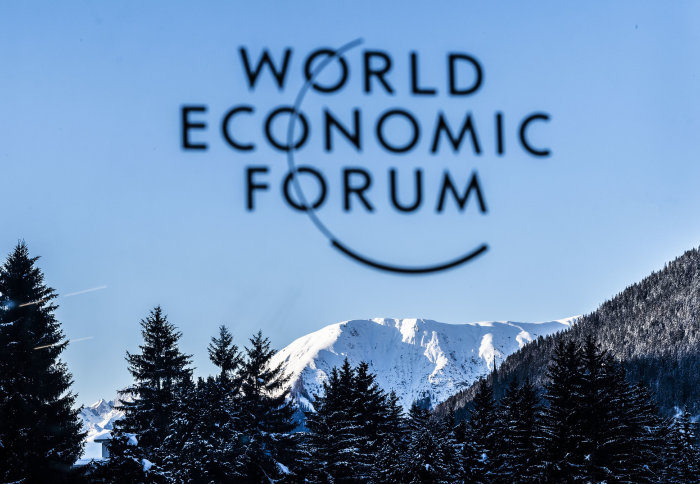
Research into biosensors, data privacy and advanced manufacturing was highlighted at the World Economic Forum in Davos by Imperial academics.
The academics joined world leaders from the G20 and other countries, CEOs of multinationals, members of international organisations and other scientists at the WEF Annual Meeting.
The Annual Meeting is celebrating WEF’s 50th anniversary and is concentrating on themes including; ecology, economy, technology, society, geopolitics and industry.

President Alice Gast was one of the first speakers on the conference’s first full day, taking part in the session Shaping the Future of Advanced Manufacturing, speaking on a panel alongside Rajeev Suri, President and Chief Executive Officer of Nokia and Paulo Guedes, Brazil’s Minister of Economy among others.
President Gast said: “Manufacturing is becoming smarter, we're able to optimise for supply chain disruptions, optimise productivity and doing that in really exciting research areas such as lightweight materials for transport vehicles or advanced manufacturing of vaccines.
"Machine learning, data sciences all the elements of being able to capture and analyse large amount of data to make rapid decisions more effectively will make a difference in optimisation opportunities for supply chains.”
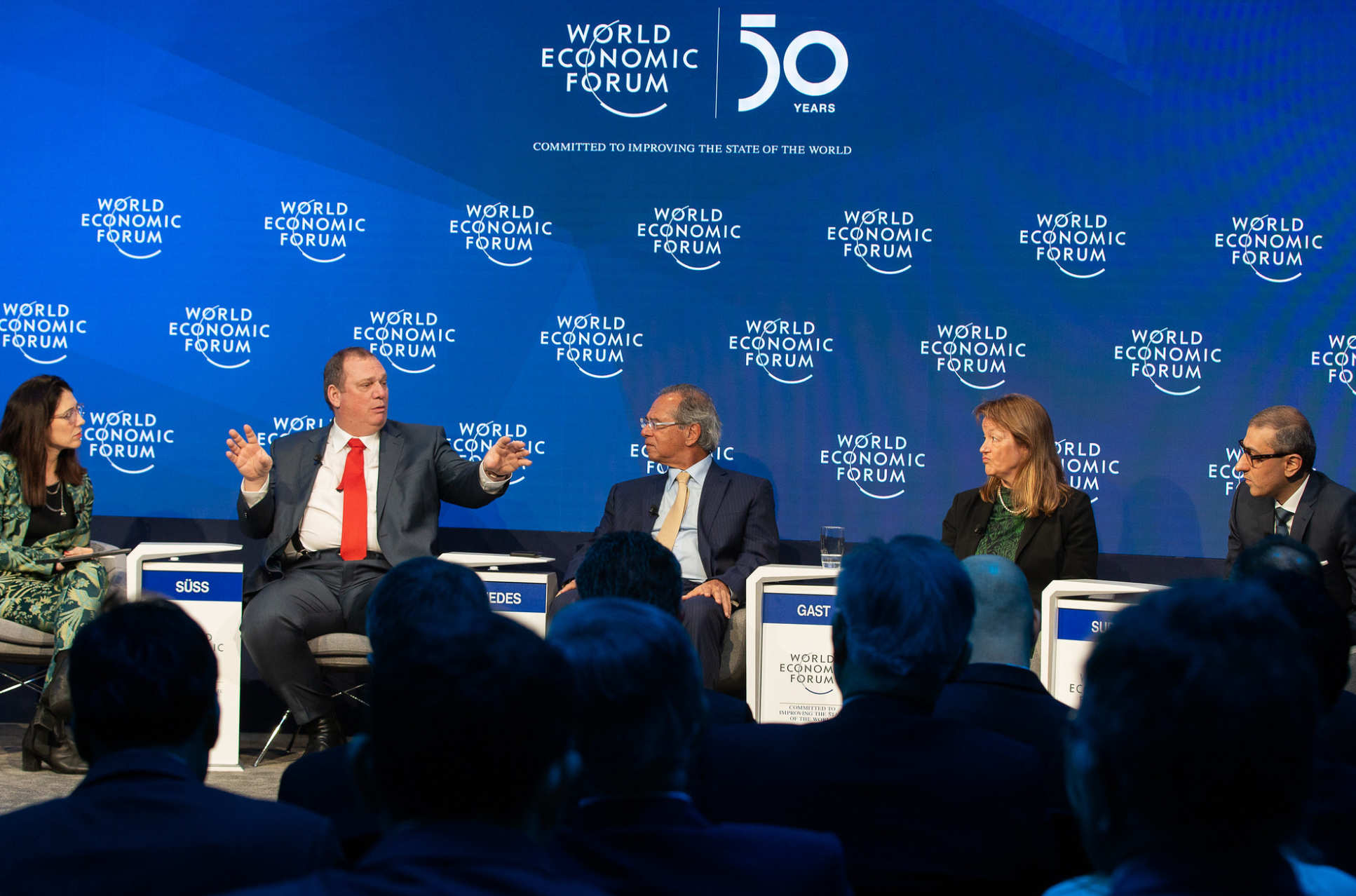
Read more about how Imperial is making an impact in Advanced Manufacturing.
Ahead of the Annual Meeting President Gast wrote for the World Economic Forum's Agenda, exploring questions about big data.
Biosensors and the future of diagnostics
Professor Molly Stevens, from the Department of Materials, led a session called Biosensors and the Future of Diagnostics.
Professor Stevens spoke about her work in collaboration with the Massachusetts Institute of Technology (MIT) to develop a colour-change urine test for cancer. Professor Stevens also outlined a project which was looking at how smartphones could help diagnose infectious diseases in sub-Saharan Africa and other developing regions.
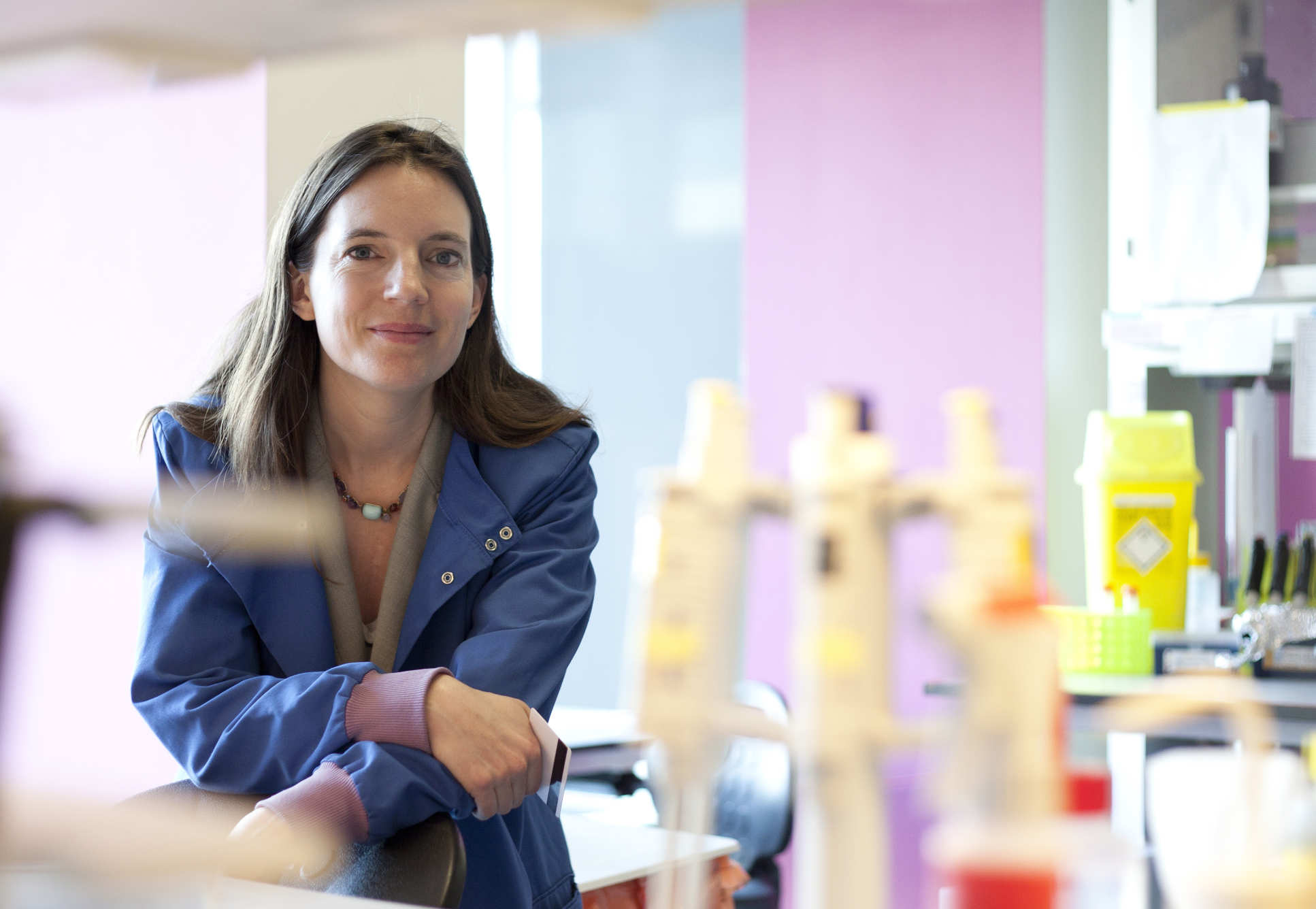
Professor Stevens said: "In places such as sub Saharan Africa more people are getting access to smartphones. We're interested in using the camera capability of the phone to capture images of the type of tests that we are going to be using for our bio-sensing.
"We see this as a really important way in helping to democratise access to healthcare.”
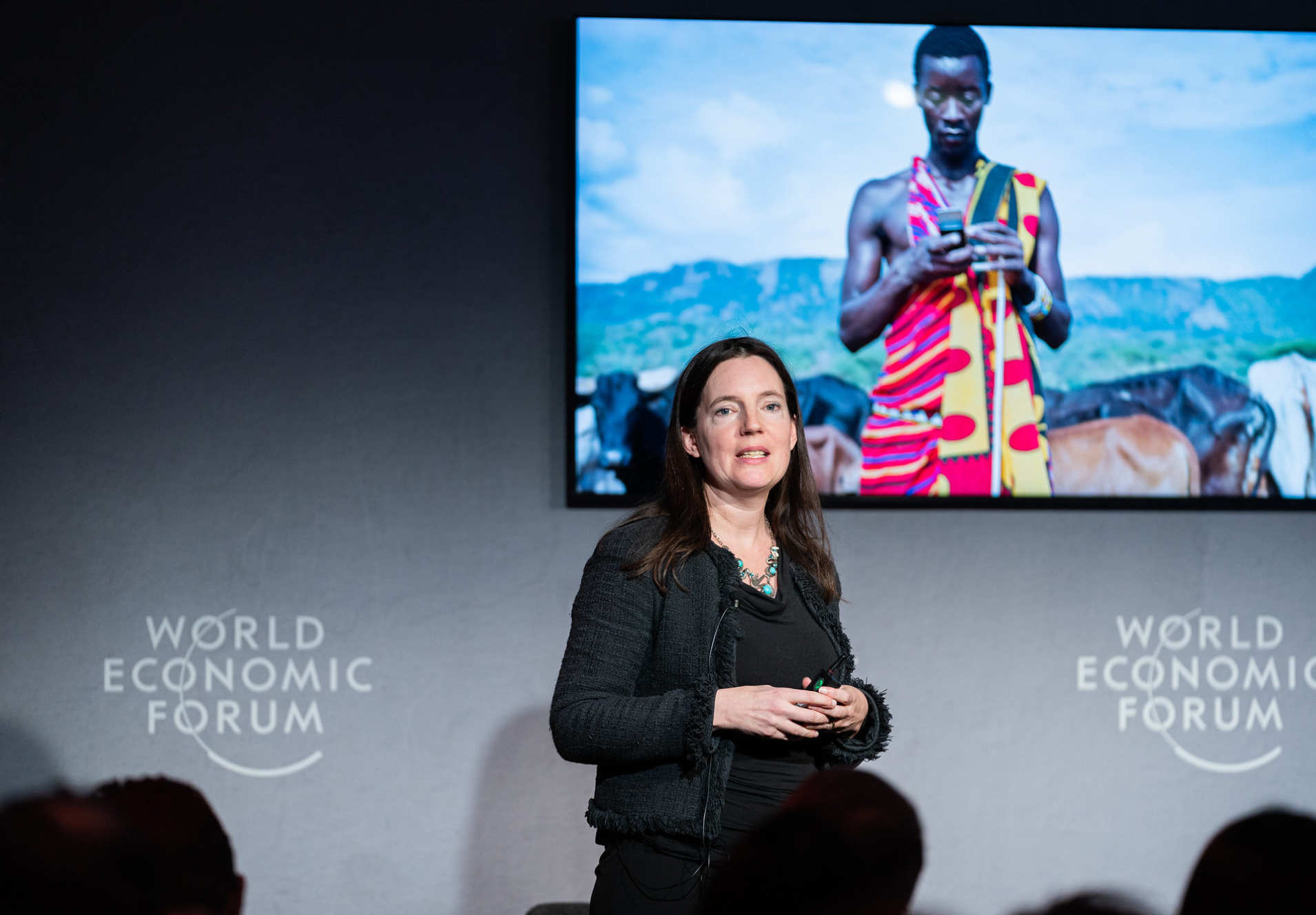
President Gast also gave the keynote talk at an even on drought resilience, organised by Community Jameel and Save the Children.
The event focused on how technological innovation could help increase the resilience of those most vulnerable to the effects of climate change. Community Jameel recently funded the creation of Imperial’s J-IDEA (Abdul Latif Jameel Institute for Disease and Emergency Analytics), the world’s most advanced institute for disease and emergency analytics.
The Business School’s Dr Harjoat Bhamra, was also in Davos this week to speak at the Blockchain Economic Forum about decentralised currency.
Accounting for human capital
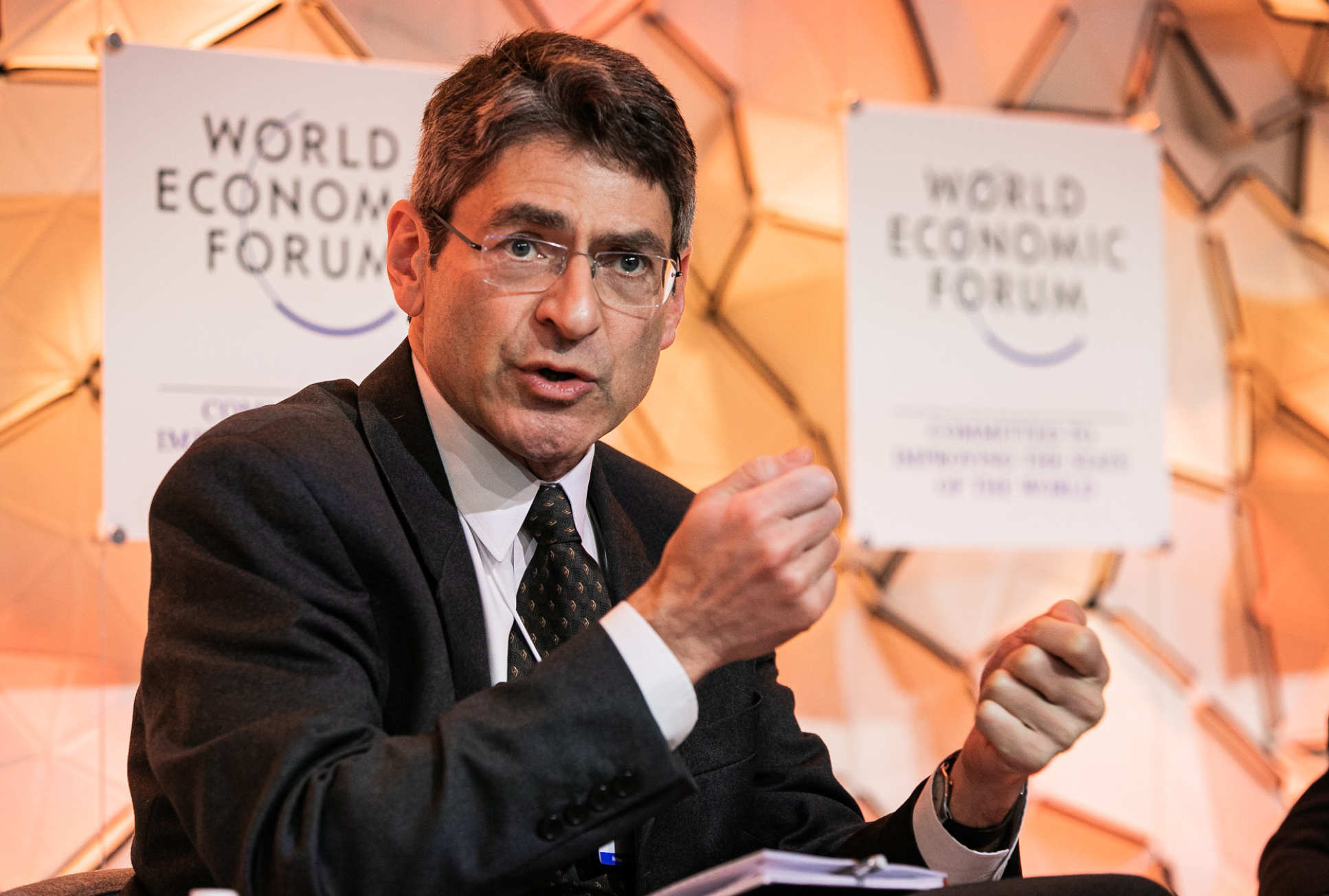
The Business School’s Professor Jonathan Haskel, who is a member of the Bank of England’s rate-setting Monetary Policy Committee, spoke on the panel ‘Accounting for Human Capital’ where he discussed how companies and policy-makers can measure the return on human capital more effectively.
Can AI and privacy co-exist?
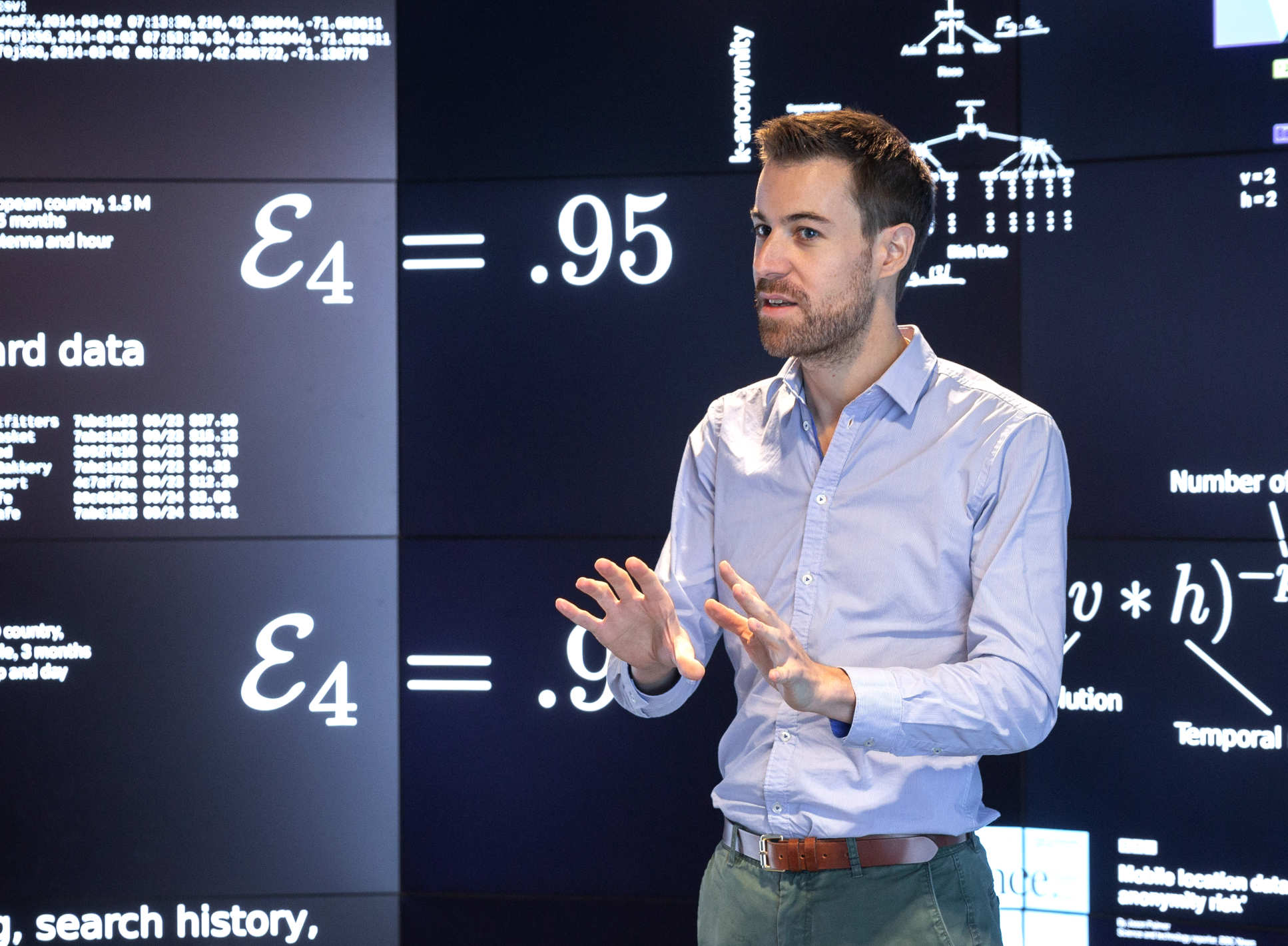
Dr Yves-Alexandre de Montjoye hosted a session on the future of AI as Europe introduced stricter privacy controls.
The session, chaired by President Gast, included an opening discussion between Rohit Chopra, Commissioner at the Federal Trade Commission and Dr de Montjoye, followed by a panel with JoAnn Stonier, Chief Data Officer at Mastercard.
Recently developed techniques enabling the re-identification of anonymous data will cause further tightening of the rules related to the use of personal data for AI.
Dr de Montjoye said: "The biggest challenge is how can we help technically find a balance between using data and preserving privacy, and use technology to break what is presented as a trade-off or choice you need to make between using data and preserving privacy.
"We do think that with the right tools you can find a balance between using data and training AI on large-scale data sets while maintaining the privacy of the individual."
--
Photo Credits (at WEF): World Economic Forum. All rights reserved.
Article text (excluding photos or graphics) © Imperial College London.
Photos and graphics subject to third party copyright used with permission or © Imperial College London.
Reporter
Stephen Johns
Communications Division